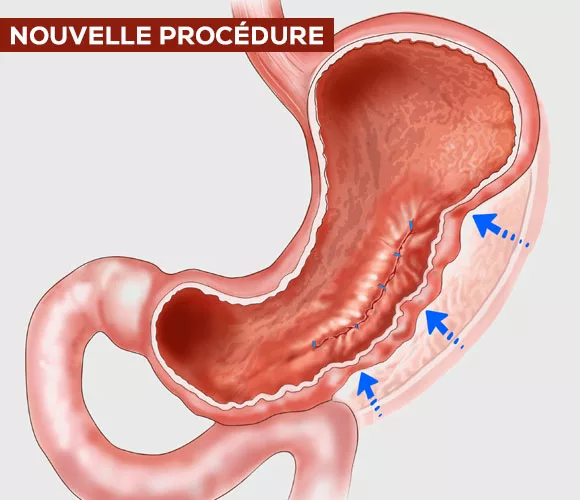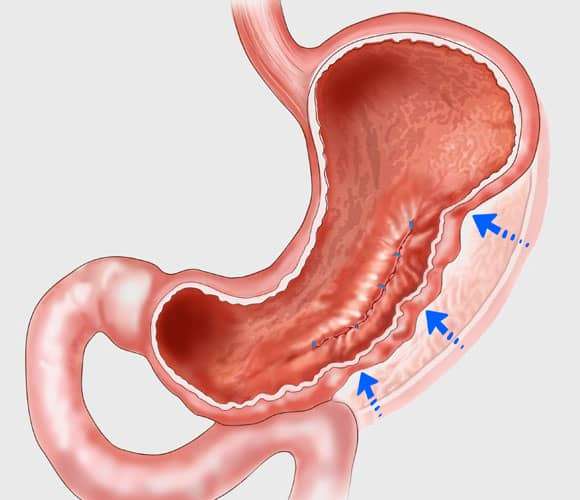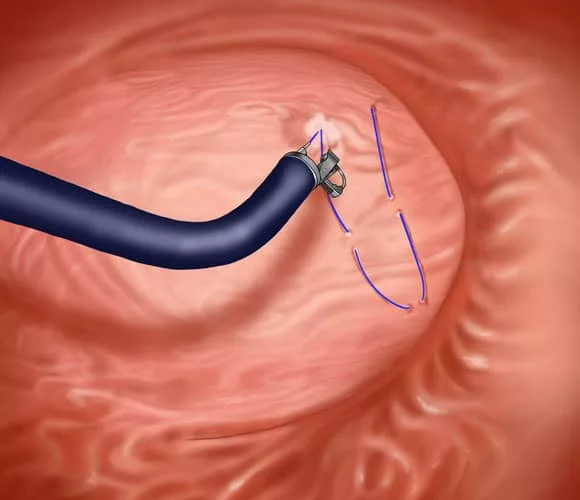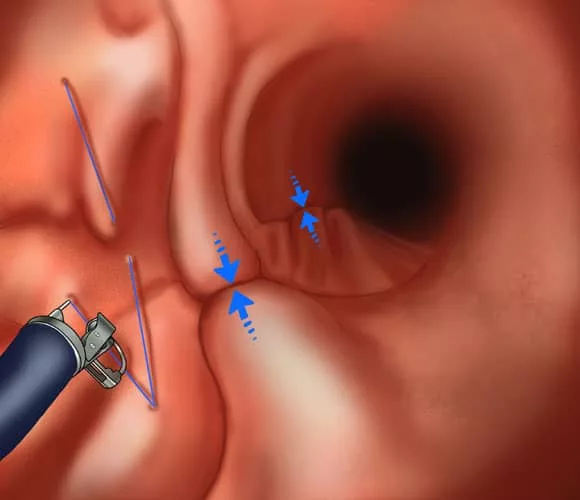Obesity and Metabolic Surgery
Endoscopic Sleeve Gastroplasty (ESG)

What is Endoscopic Sleeve Gastroplasty (ESG)?
Endoscopic Sleeve Gastroplasty (ESG) is an innovative, minimally invasive medical procedure designed to aid weight loss in obese individuals. It involves reducing the size of the stomach from the inside, without surgery, using an endoscope (a flexible tube inserted through the mouth) equipped with a suture system. This procedure modifies the stomach to decrease its capacity and slow gastric emptying, which promotes a feeling of fullness with less food.
ESG does not require incisions, leaves no scars, and does not permanently alter the anatomy of the stomach. It can be performed under general anesthesia, often on an outpatient basis, with a quick recovery.



Who is Endoscopic Sleeve Gastroplasty for?
ESG is intended for people with a body mass index (BMI) of 30 kg/m² or higher, particularly when traditional weight loss methods (diet, physical activity, medical supervision) have not yielded sufficient results.
It is also an option for patients who cannot undergo traditional obesity surgery for medical reasons (history of abdominal surgery, high surgical risks) or who prefer to avoid more invasive surgery.
Eligibility requirements
To be eligible for ESG, you must:
- Be over 18 years of age,
- Have a BMI ≥ 30 kg/m²
- Agree to regular medical follow-up before and after the procedure.
ESG is contraindicated in certain cases, including:
- Presence of gastrointestinal bleeding,
- Hiatus hernia greater than 3 cm,
- History of major esophageal or stomach surgery
How is the procedure performed?
The procedure is performed under general anesthesia. An endoscope is inserted through the mouth into the stomach, where a suture system is used to “pleat” the stomach wall, thereby reducing its internal volume. This modification slows down the passage of food and limits the amount ingested.
The procedure lasts an average of 45 minutes.
It does not alter the anatomy of the stomach and does not require any skin incisions, which distinguishes it from conventional surgery.
After the procedure
Medical monitoring is provided in the recovery room to watch for any complications. You can be discharged the same day or the next day.
A liquid and blended diet is recommended for a few days, then gradually replaced by more solid foods. Multidisciplinary follow-up (surgeon, nutritionist, endocrinologist, psychologist) is essential to ensure long-term success.
Expected results
Endoscopic Sleeve Gastroplasty (ESG) enables significant and lasting weight loss, as confirmed by several recent clinical studies. On average, patients can expect a 30% to 50% reduction in excess weight within 6 to 12 months of the procedure.
In addition to weight loss, ESG promotes a significant improvement in obesity-related comorbidities, including reduced blood pressure, better management of type 2 diabetes, and a decrease in sleep apnea symptoms.
It is important to note that long-term success depends on active commitment to dietary changes and physical activity.
Safety, side effects, and follow-up
ESG has an excellent safety profile. Serious complications are rare, and immediate side effects, such as mild pain and nausea, are usually well controlled with simple treatments. There is no risk of gastric cut or resection associated with this procedure, making it a reversible and flexible technique.
The procedure can be repeated if necessary, and it does not preclude other complementary treatments, whether conventional bariatric surgery at a later date or drug treatments (anti-obesity medication). This allows ESG to be integrated into a comprehensive treatment plan that can be customized according to individual needs and results.
Our multidisciplinary team, made up of surgeons, endocrinologists, nutritionists, and other specialists, supports you throughout your care journey, before and after endoscopic gastroplasty. This rigorous follow-up is essential to optimize results, prevent complications, and support you in making the lasting lifestyle changes necessary for the procedure to be successful.
Advantages of endoscopic gastroplasty
- Non-surgical procedure, no incisions or scars,
- Quick procedure with short recovery time,
- Possibility of outpatient hospitalization,
- Reversible and adjustable procedure if necessary,
- Alternative for patients who cannot or do not wish to undergo traditional bariatric surgery.
In summary
- Average weight loss: 30–50% of excess weight in 6–12 months,
- Improvement in comorbidities (diabetes, hypertension, sleep apnea),
- Very good safety profile, no resection or scarring,
- Reversible, repeatable, and adjustable procedure,
we help you achieve your weight-loss goals
The surgical management of obesity is based on 4 axes.
The surgical intervention, the preoperative and postoperative nutritional care, a preoperative and sometimes postoperative psychological assessment and follow-up, and a regular and sustained physical activity…
